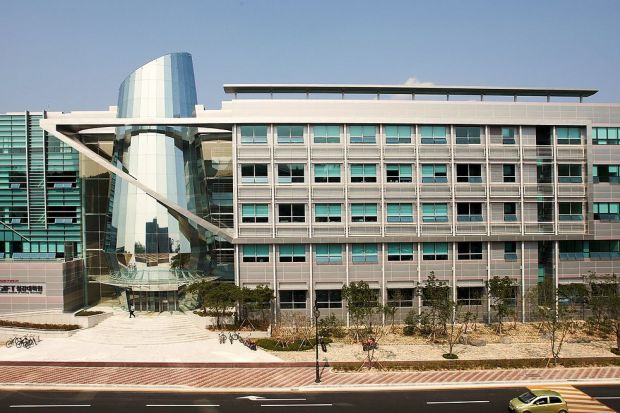
Eunseo Kim, a chemical engineering student, on life at South Korea's small and prestigious university:
The best thing about POSTECH is an environment that is conducive to learning. We have small classes, and the low student-to-faculty ratio allows extensive opportunity for one-on-one contact with the professors during and after classes. I feel that the students are very well taken care of here, and the educational expenditure per student by the university is much greater than at other universities. The downside of POSTECH being a small university, however, is that my exposure to a variety of people is somewhat limited.
It is much easier to make friends at POSTECH. I heard that at other (big) universities you hardly get to know people outside your department/faculty. Here, we know pretty much everyone in the same class; I would recognise more than 80 per cent of people in my class and 20 per cent in the whole student population. As we have a small student body, students often share mutual friends and are connected in one way or another. More than anything, the university has a sense of intimacy and connection throughout campus. Hardly any student is left out of the circle.
The small size offers a much greater opportunity especially in terms of the extracurricular side of student life. Various programmes are planned and on offer to meet students’ individual needs and interests. Also, there is a higher chance of participating in internships and exchange programs at POSTECH whereas students would have to wait in an endless line at other big universities.
I don’t hesitate to drop by my professors’ offices and get advice for any concerns that I may have. The professors whose classes I have taken all know my name and welcome me into their offices. At POSTECH, there is an adviser for every four or five undergraduate students. The professor provides intensive mentoring, and we have gatherings off campus at least a couple of times a semester.
Seung Wook Kim, a first-year computer science and engineering student, explains why POSTECH is the best place for his entrepreneurial ambitions:
To make it clear, I did have a choice between POSTECH and many other “big” universities around the world, including the Hong Kong University of Science and Technology, the University of Southampton and the University of Cambridge. Being a big dreamer and yearning to be an entrepreneur, I chose POSTECH because I believed that I could make the best (or the most) difference here, thanks to its size. I was certain that POSTECH would have many different types of students just like any other big universities do, just fewer in number. It occurred to me that it would be much easier but equally fulfilling to spread my thoughts and idea in POSTECH, a small but impressive university.
While there are countless positives, the one I believe to be the most meaningful is that I feel remembered, connected and needed. I really feel that I count. With just a little over 300 students entering every year, there are about 10 students (maximum 30) in a class, except for some extremely rare cases where there are more than 100 students in a class. Thanks to this, the professors most likely remember each and every one of us – our names, major, and even our nicknames. Classmates feel like a family, and due to the small number of students, working in groups always provides an equal chance – and responsibility – of contribution. If I am to come up with a negative, it would be that you don’t often get to meet “new people” on campus. However, there are so many interschool activities, events and camps provided in POSTECH, enabling us to meet countless new people outside campus; I have never thought it as a serious problem.
A major difference in the extracurricular side of life between POSTECH and other big universities is that while there are numerous clubs and societies pertaining to a particular criteria in a big university, there is just one – at most two – club(s) per category in POSTECH, making every club in POSTECH a major and representative one. As far as I know, all performance-related clubs in POSTECH are given more or less equal opportunities of performing, and their quality of performance does not fall behind that of a big university’s club.




















Have your say